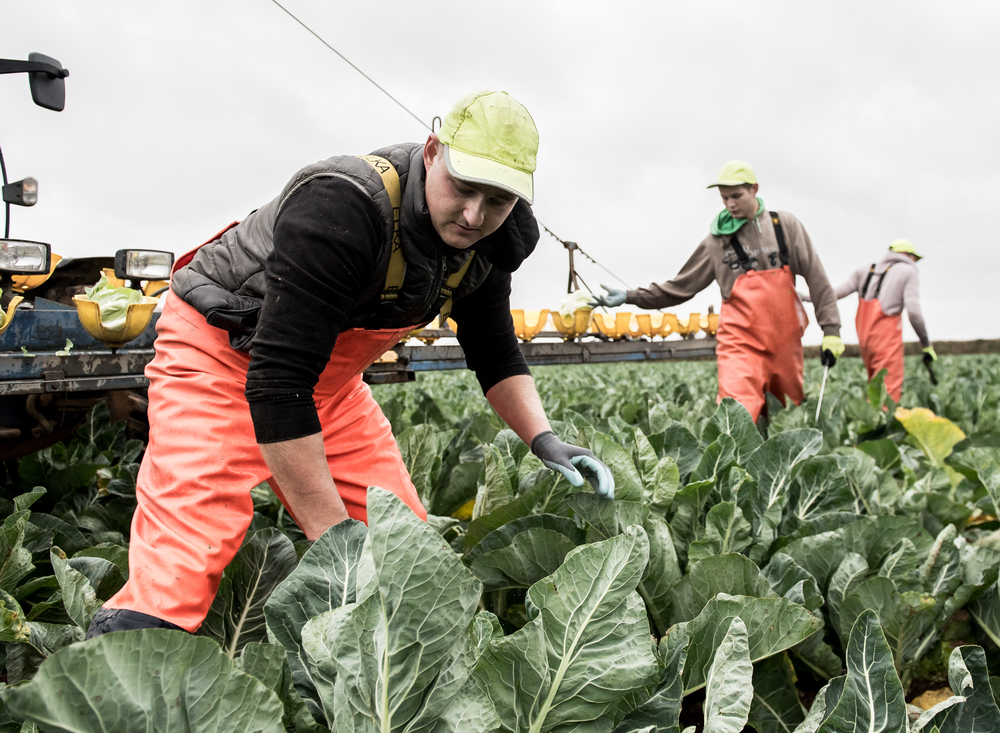The report was sent to government ministers on 27 August highlighting the impact the pandemic and the UK’s post-Brexit immigration policy is having on the sector’s ability to recruit key workers. The report highlights an average vacancy rate of 13% and estimates there are more than 500,000 vacancies across food and drink businesses. In addition, the report draws attention to the significantly increasing cost of getting food to the public.
Email your MP today to call on government to introduce a 12-month Covid Recovery Visa so we can keep our vital food and drink supply chain moving.
Establishing the labour availability issues of the UK food and drink sector
In order to ensure continuity, quality and choice in the UK's food supply both in the immediate and medium-term, the report sets out clear ways government can help the food and drink industry overcome the current workforce challenges. These include:
- The introduction of a 12-month Covid-19 Recovery Visa which would enable all involved throughout the supply chain to recruit critical roles, such as HGV drivers, as a short-term response to labour shortages.
- Commitment to a permanent, revised and expanded Seasonal Worker Scheme for UK horticulture to ensure it is flexible and large enough to meet the industry’s workforce needs.
- An urgent review by the Migration Advisory Committee (MAC) on the impact of ending free movement on the food and farming sector, in the same way it is doing for adult social care.
- Read our explainer article: Food chain labour shortages - what you need to know
- Read the report here: Establishing the labour availability issues of the UK food and drink sector
- Read the briefing we prepared for MPs: Labour availability in the food and drink sector, September 2021

NFU Vice President Tom Bradshaw, pictured above, said:
“For the past 18 months, food and farming businesses have been working hard to keep shelves and fridges full of nutritious and affordable food. But as this report demonstrates, businesses throughout the supply chain in a wide variety of roles are really feeling the impacts of the workforce shortages.
“At the very start of the supply chain, farm businesses are feeling the pressure. For example, horticulture farms are struggling to find the workforce to pick and pack the nation’s fruit and veg, with some labour providers seeing a 34% shortfall in recruitment.
“Farm businesses have done all they can to recruit staff domestically, but even increasingly competitive wages have had little impact because the labour pool is so limited – instead only adding to growing production costs.
“It is simplistic to argue that the end of furlough will see many more people meeting this shortfall. Furloughed workers are concentrated in urban areas and not where many agri-food roles are located. A solution to this crisis will need the right people with the right skills and training available in rural areas where many roles are based.
“A short term Covid-19 Recovery Visa, alongside a permanent Seasonal Workers Scheme, would be an effective and, frankly, vital route to help the pressing needs of the industry today. It would also give us time to invest in the skills and recruitment of our domestic workforce, helping to provide long-term stability so we can recruit the people we need to continue to deliver quality, nutritious and affordable food for the nation.”

What is the food and farming industry saying?
Ian Wright CBE, chief executive of the Food and Drink Federation, said:
“This really authoritative report sets out in stark detail the labour and skills shortages currently facing the food supply chain. Drawing on a wide range of evidence, the report illustrates the breadth and scale of the issues confronting the industry. The report makes it crystal clear that today’s labour shortages are caused by a multitude of structural factors beyond those created by Covid-19 and the end of the Brexit transition period.
“The recommendations set out within this report, including the Covid-19 Recovery Visa and measures to support domestic training and skills development, the adoption of new technologies and career promotion, provide industry and the government with highly practical solutions. They will ensure that the food supply chain continues to thrive with a strong and skilled workforce. However, it is also evident that without fast action the labour challenges will continue. If they do, we can expect unwelcome consequences such as reduced choice and availability for consumers, increased prices, and reduced growth across the domestic food chain.”
Nick Allen, chief executive of the British Meat Processors Association, said:
“The meat industry has been severely impacted by the current labour crisis, which is not only resulting in shortages in shops but is also beginning to have increasing upstream impacts on farms.
“We have welcomed the opportunity to join with other sectors in the food industry to pull together a summary of the massive challenges we are all facing and to offer some immediate and practical solutions to government.”
Dr Judith Bryans, chief executive of Dairy UK, said:
“The food and drink sector is the bedrock of food security in the UK as well as being a major contributor to the economy. The food sector is investing into the skills and recruitment of its workforce and taking all the measures it can to address the many issues raised in this report. However, we are now experiencing significant difficulties in terms of labour shortages. One very practical example is the disruption in the delivery of food across the UK due to the serious shortage of HGV drivers.
“This report lays out clearly what government support and interventions are now essential for the food and drink sector to address these issues and avoid a future of continued disruption. We’d strongly urge the government to act upon the recommendations within this report.”
Richard Harrow, chief executive of the British Frozen Food Federation, said:
“Labour shortages throughout the food supply chain are creating a ‘perfect storm’ of increasing costs for our members. While the long-term solution is to train more UK nationals, we will only avoid further disruption to food supplies and inflationary cost increases by taking the temporary visa measures this report is recommending.”
More information
The Establishing the labour availability issues of the UK food and drink sector report was produced by accounting and consultancy firm Grant Thornton on behalf of the following organisations:
- Agricultural Industries Confederation
- British Frozen Food Federation
- British Meat Processors Association
- British Poultry Council
- Dairy UK
- Federation of Wholesale Distributors
- Food and Drink Federation
- National Farmers' Union
- National Pig Association
- Road Haulage Association
- The Cold Chain Federation
- UK Hospitality Industries
